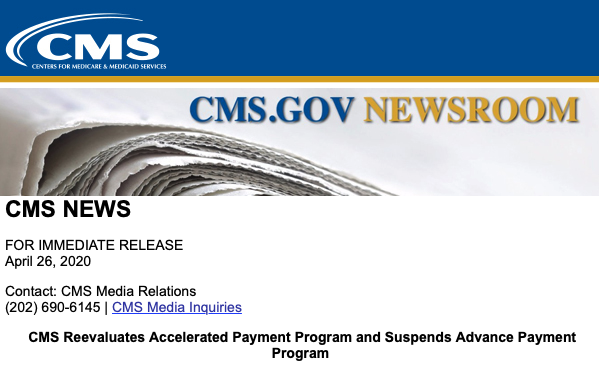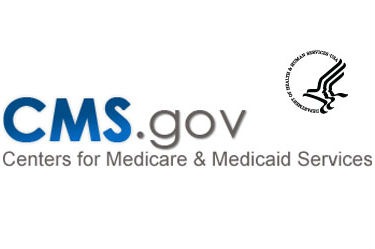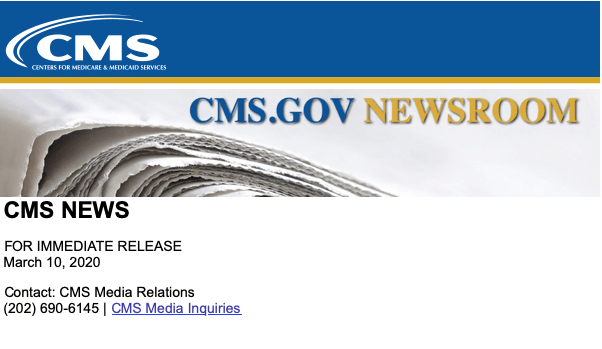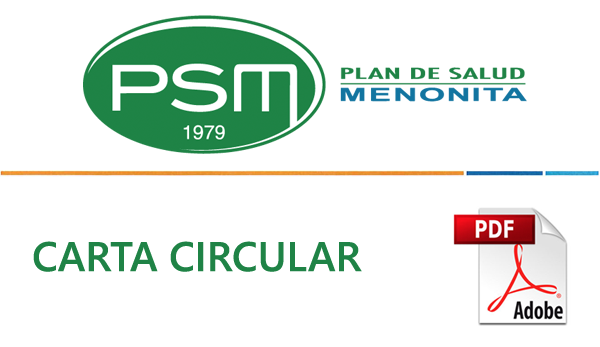CMS NEWS
FOR IMMEDIATE RELEASE
March 10, 2020
Contact: CMS Media Relations
(202) 690-6145 | CMS Media Inquiries
CMS Sends More Detailed Guidance to Providers about COVID-19
Healthcare workers in home health agencies and dialysis facilities are the latest group to receive important information on protecting staff and at-risk patients
Today, the Centers for Medicare & Medicaid Services (CMS) is supplementing its guidance to home health agencies and dialysis facilities to protect the health and safety of our nation’s patients and providers in response to the 2019 Novel Coronavirus (COVID-19) outbreak.
The memoranda were developed from frequently asked questions the agency has received about interacting with patients amid COVID-19. The guidance offers clear, actionable information to healthcare workers on the screening, treatment and transfer procedures to follow when interacting with patients. This action is part of the broader effort by the White House Task Force to ensure that all of our nation’s healthcare providers and patients – particularly those at high-risk of complications from COVID-19 – remain healthy while helping to contain the spread of the disease.
“We are arming our providers on the front lines with the information they need to remain safe, while giving quality care to their patients,” said CMS Administrator Seema Verma. “Today’s guidance will help providers identify patients who may have contracted the disease and minimize further transmission. It will also equip them to get these patients the medical care they need in order to recover.”
CMS is responsible for protecting beneficiaries who receive home healthcare services as well as those who receive treatment in dialysis facilities. Today’s guidance is an enhancement to the agency’s health and safety requirements and aims to help control and prevent the spread of infection. In particular, the new guidance advises all Medicare-enrolled dialysis facilities to identify high risk individuals prior to appointments or upon arrival, and immediately begin screening for fever or symptoms of a respiratory infection, such as a cough and sore throat, international travel within the last 14 days to restricted countries, and contact with someone with known or suspected COVID-19. Additionally, the guidance recommends screening visitors for potential exposure to the virus, gives detailed instructions for dealing with staff who have either been exposed or are showing signs of illness, and offers a list of frequently asked questions that include responses to help safely treat patients in this setting.
The guidance to home health agencies echoes recommendations set forth by the Centers for Disease Control and Prevention (CDC), with specific considerations of when it is safe to treat patients at home, when patients should be considered for hospitalization and recommendations for family member exposure, when evaluating and caring for patients with known or suspected COVID-19. CMS is recommending home health agencies remain vigilant, regularly monitor patients for any symptoms of the virus, and communicate effectively with patients, family members and other caregivers so that the entire care team understands a patient’s individual needs and goals of care. CMS’s guidance ends with a frequently asked question section offering answers to information that will ensure safe, quality care in the face of COVID-19.
To view, CMS’s guidance for home health providers, visit:https://www.cms.gov/medicareprovider-enrollment-and-certificationsurveycertificationgeninfopolicy-and/guidance-infection-control-and-prevention-concerning-coronavirus-disease-2019-covid-19-home-health
To view, CMS’s guidance for dialysis facilities providers, visit:https://www.cms.gov/medicareprovider-enrollment-and-certificationsurveycertificationgeninfopolicy-and/guidance-infection-control-and-prevention-coronavirus-disease-2019-covid-19-dialysis-facilities
This guidance, and earlier CMS actions in response to the COVID-19 virus, are part of the ongoing White House Task Force efforts. To keep up with the important work CMS is doing in response to COVID-19, please visit the Current Emergencies Website.
Summary of CMS Public Health Action on COVID-19 to date:
On March 9, 2020: CMS delivered guidance on the screening, treatment and transfer procedures healthcare workers must follow when interacting with patients to prevent the spread of COVID-19 in a hospice setting. CMS also issued additional guidance specific to nursing homes to help control and prevent the spread of the virus.
https://www.cms.gov/newsroom/press-releases/cms-issues-clear-actionable-guidance-providers-about-covid-19-virus
On March 9, 2020: CMS issued a press release highlighting the telehealth benefits in the agency’s Medicare program for use by patients and providers. Expanded use of virtual care, such as virtual check-ins, are important tools for keeping beneficiaries healthy, while helping to contain the community spread of the COVID-19 virus.
https://www.cms.gov/newsroom/press-releases/telehealth-benefits-medicare-are-lifeline-patients-during-coronavirus-outbreak
On March 9, 2020: CMS published guidance to hospitals with emergency departments (EDs) on patient screening, treatment and transfer requirements to prevent the spread of infectious disease and illness, including COVID-19. Medicare-participating hospitals are to follow both CDC guidance for infection control and Emergency Medical Treatment and Labor Act (EMTALA) requirements.
https://www.cms.gov/newsroom/press-releases/cms-issues-call-action-hospital-emergency-departments-screen-patients-coronavirus
March 6, 2020: CMS issued frequently asked questions and answers (FAQs) for healthcare providers regarding Medicare payment for laboratory test and other services related to the 2019-Novel Coronavirus (COVID-19). https://www.cms.gov/newsroom/press-releases/covid-19-response-news-alert-cms-issues-frequently-asked-questions-assist-medicare-providers
March 5, 2020: CMS issued a second Healthcare Common Procedure Coding System (HCPCS) code for certain COVID-19 laboratory tests, in addition to three fact sheets about coverage and benefits for medical services related to COVID-19 for CMS programs. https://www.cms.gov/newsroom/press-releases/cms-develops-additional-code-coronavirus-lab-tests
March 4, 2020: CMS issued a call to action to healthcare providers nationwide and offered important guidance to help State Survey Agencies and Accrediting Organizations prioritize their inspections of healthcare. https://www.cms.gov/newsroom/press-releases/cms-announces-actions-address-spread-coronavirus
February 13, 2020: CMS issued a new HCPCS code for providers and laboratories to test patients for COVID-19. https://www.cms.gov/newsroom/press-releases/public-health-news-alert-cms-develops-new-code-coronavirus-lab-test
February 6, 2020: CMS gave CLIA-certified laboratories information about how they can test for SARS-CoV-2. https://www.cms.gov/medicareprovider-enrollment-and-certificationsurveycertificationgeninfopolicy-and-memos-states-and/notification-surveyors-authorization-emergency-use-cdc-2019-novel-coronavirus-2019-ncov-real-time-rt
February 6, 2020: CMS issued a memo to help the nation’s healthcare facilities take critical steps to prepare for COVID-19. https://www.cms.gov/medicareprovider-enrollment-and-certificationsurveycertificationgeninfopolicy-and-memos-states-and/information-healthcare-facilities-concerning-2019-novel-coronavirus-illness-2019-ncov
